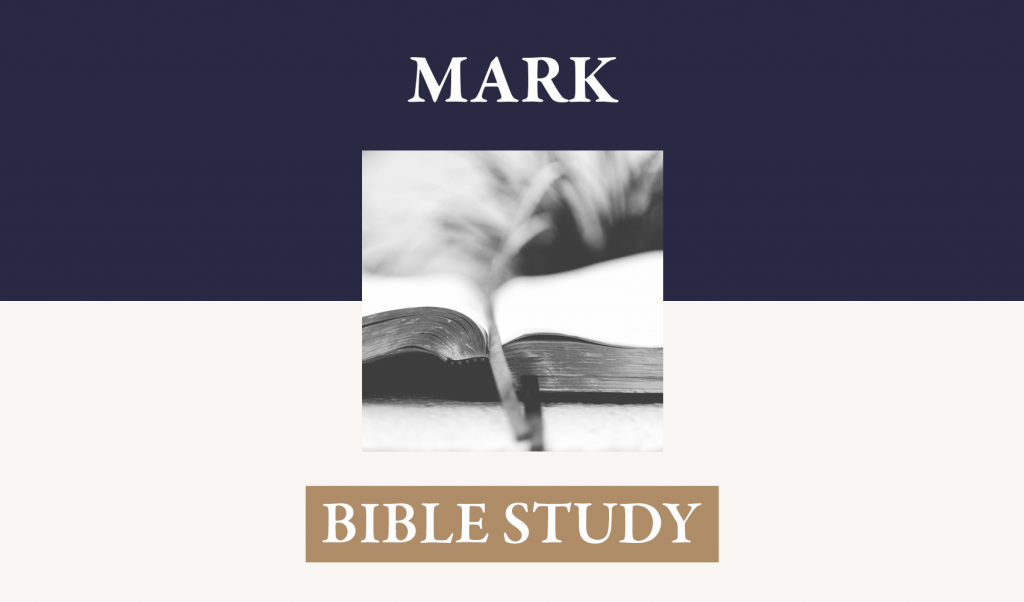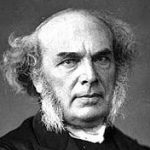Lesson Focus: This lesson is about the practice of meditation as expressed in the Psalms and by Jesus.
Focus on the Word: Psalm 119:11-16.
[11] I have stored up your word in my heart, that I might not sin against you. [12] Blessed are you, O LORD; teach me your statutes! [13] With my lips I declare all the rules of your mouth. [14] In the way of your testimonies I delight as much as in all riches. [15] I will meditate on your precepts and fix my eyes on your ways. [16] I will delight in your statutes; I will not forget your word. [ESV]
In order to live a holy life we must give ourselves to God’s Word, learning it and living by it. When should we start? The world has its answer. It says, Have your fling when you are young and settle down to being religious when you get old, if then. God’s answer is quite different. God says, If you are going to live for me, you must begin at the earliest possible moment, without delay, preferably when you are very young [9]. If you do not live for me when you are young, you will probably not live for me when you are older either, and the end of your life will be ruinous. It does not require a great deal of wisdom to see why this is such good advice and so necessary. It is because the decisions of youth form habits that guide us from that point on and are hard to break. If we form good habits when we are young – reading the Bible, spending time in prayer, enjoying the company of God’s people, going to church, rejecting sin, and practicing to be honest and do good – these habits will go with us through life and make good choices later in life easier. If on the contrary we make bad choices later we will find good choices harder to make and the bad habits nearly impossible to break. This point is so important that the Bible gives us numerous examples of young men who decided for God early and were blessed for it. This section of Psalm 119 is telling us that the best possible way to live for God and establish and maintain a pure life is by starting young. Verses 9-11 tells us what we should do to live for God: Hide God’s Word in our hearts. Hiding His Word in our hearts means not just to read it but also to study it and even memorize it. In fact, memorizing is precisely what is called for, since it is only when the Word of God is readily available in our minds that we are able to recall it in moments of need and profit by it. One reason we should store God’s word in our hearts is that we might not sin against Him [11]. What can empower us to say no to temptation? What can enable us to live a holy life in the midst of our most wicked surroundings? Only the Word of God which we must study and hide away in our hearts. But we cannot understand God’s Word by ourselves, and therefore we need God Himself for our teacher [12]. We need the Holy Spirit to teach us God’s Word if we are to understand and rightly apply that Word. When we study the Bible we must also pray, asking God to be our teacher. It is God Himself we are seeking, after all, and His thoughts are not our thoughts, neither are His ways our ways [Isaiah 55:8]. Besides, we have sinful and deceitful hearts that will keep us from hearing and obeying God unless God Himself breaks through to teach us. The psalmist concludes with four points of very simple, practical advice, expressed in terms of his own experience. We might call them four exercises designed to help us master Scripture. The first exercise is found in verse 13. One of the best ways to learn anything is to verbalize it or teach it to others. The second exercise is in verse 14. One good way to learn and retain God’s Word is to rejoice in it. Rejoicing in God’s Word can be done in a lot of ways, privately in our personal devotions and publicly in witnessing situations. One very excellent way is by joyful worship in regular church services. The third exercise is in verse 15. Meditation is recalling what we have committed to memory and then turning it over and over in our minds to see the fullest implications and applications of the truth. The fourth exercise is in verse 16. Delight in this verse is not the same Hebrew word used in verse 14. In verse 14 the word delight or rejoice means an exuberant, festive joyfulness. While the word delight in verse 16 is a settled pleasure. The two words are parts of the same emotion, but what is new in verse 16 is the determination not to neglect Bible study. It is easy to do, but we must determine not to allow other pressing matters to crowd out the study of God’s Word.
Fellowship Through Prayer: Mark 1:35-39.
[35] And rising very early in the morning, while it was still dark, he departed and went out to a desolate place, and there he prayed. [36] And Simon and those who were with him searched for him, [37] and they found him and said to him, "Everyone is looking for you." [38] And he said to them, "Let us go on to the next towns, that I may preach there also, for that is why I came out." [39] And he went throughout all Galilee, preaching in their synagogues and casting out demons. [ESV]
The healing of Peter’s mother-in-law in 1:30-31 yields to a general summary of Jesus’ mission in verses 35-39, without details of location or duration. The effect of the summary is to show that Jesus’ ministry extends beyond both the confines of Capernaum and the scope of the Gospel narrative so far. Despite its general nature, this brief historical summary advances Mark’s theological purpose that in His ministry of teaching and healing Jesus remains essentially misunderstood, and not only by the religious leaders and crowds but also by His own disciples. Jesus rises early and leaves Capernaum to pray in solitude. Mark records Jesus praying only three times in his Gospel: here in verse 35; following the feeding of the five thousand [6:46]; and in Gethsemane [14:32-39]. All three occur at night and in solitary places. All three also occur in contexts of either implied or expressed opposition to Jesus’ ministry. Amid a whirlwind of activity, Jesus seeks a still point in prayer with the Father. There is a suggestive parallel in wording between Jesus going out to pray [35] and His going out to preach and expel demons [39]. The work of the Son of God is both an inward and an outward work. Jesus cannot extend Himself outward in compassion without first attending to the source of His mission and purpose with the Father; and, conversely, His oneness with the Father compels Him outward in mission. The significance of Jesus’ ministry consists not simply in what He does for humanity, but equally in who He is in relation to the Father. Jesus is, according to Mark’s narrative, neither a contemplative ascetic nor social activist. He does not promote an agenda but derives a ministry from a relationship with the Father. He is the Son, one in being with the Father; and the Servant, one in purpose with His will.
Peter and the disciples searched for Jesus. When they find Jesus they announce, Everyone is looking for you. This verb occurs ten times in Mark, and in each instance it carries negative connotations. Its first two occurrences refer to interference of Jesus and obstruction of His ministry [1:32; 3:32]; its next two refer to disbelief and faithlessness [8:11,12]; and the remaining occurrences refer to attempts to kill Jesus [11:18; 12:12; 14:1,11,55]. Thus the verb describes an attempt to determine and control rather than to submit and follow. In this respect, seeking for Jesus is not a virtue in the Gospel of Mark. Nor are clamoring crowds a sign of success or aid to ministry. Here, as elsewhere in Mark, enthusiasm is not to be confused with faith; indeed, it can oppose faith. The disciples evidently want Jesus to capitalize on His notoriety as a miracle worker. Already on the first day of public ministry, according to Mark, Jesus’ mission is endangered, and by those closest to Him. Jesus, however, remains undeflected from His purpose, responding simply and decisively, that is why I came. In this unassuming declaration Jesus reaffirms His baptismal commission of service that He fulfills by proclaiming the gospel of God [1:14-15]. Mark locates Jesus’ preaching and exorcisms in their synagogues. The focus of Jesus’ ministry to Jewish synagogues again identifies Him as a teacher of Israel. The gospel is not revealed in a vacuum, nor in ecstatic movements, of which there were many in first-century Palestine. Jesus directs His ministry to practicing communities of faith in Judaism in fulfillment of an earlier history of revelation. His mission is defined and directed by the completion of God’s purpose for Israel.
Fruit of Time Well Spent: Psalm 1:1-3.
[1] Blessed is the man who walks not in the counsel of the wicked, nor stands in the way of sinners, nor sits in the seat of scoffers; [2] but his delight is in the law of the LORD, and on his law he meditates day and night. [3] He is like a tree planted by streams of water that yields its fruit in its season, and its leaf does not wither. In all that he does, he prospers. [ESV]
The first psalm is among the best known psalms for it stands as a magnificent gateway to this extraordinary ancient collection of Hebrew religious verse. Psalm 1 is a practical psalm. We are taught at once that study of the Psalter must have practical effects if the psalms are to achieve the purpose for which God gave them to us. Psalm 1 introduces us to the way in which we may find happiness and fulfillment in life. It is by meditation on and delight in the law of God. The psalm also warns us of sure, eventual, and eternal ruin if we do not. Psalm 1 introduces us to the doctrine of the two ways, which is a very common concept. We find Jesus using this concept at the end of His Sermon on the Mount. The last section of the sermon lists a series of contrasts, between which choices must be made: two gates and two roads, two trees and their two types of fruit, two houses and two foundations. Psalm 1 is the clearest, most carefully developed, and first full expression of this idea in the Bible. Psalm 1 deliberately draws two portraits in our minds: the portrait of the wicked man and the portrait of the wise man. The question then is posed: Which are we? As we enter the sanctuary of the psalms to worship and petition the Lord, whose side are we on? The first verse of Psalm 1 begins with the word blessed. This is important certainly, for it is a way of saying that the psalms (as well as all Scripture) have been given to us by God to do us good. Blessed means supremely happy or fulfilled. In fact, in Hebrew the word is actually a plural, which denotes either a multiplicity of blessings or an intensification of them. At first glance it might seem surprising that the idea of the blessed or the happy man is followed immediately by a description of the wicked man, particularly since a description of the way of the wicked also appears later in verses 4 and 5. But it is actually an excellent device. By starting in this way the poet achieves three important things. First, he begins where we are. None of us automatically starts out being righteous. We start out being sinners, and if we do eventually enter by the straight gate upon the narrow road that leads to life, it is by God’s grace. Second, the poet is able to introduce the doctrine of the two ways from the start. We do not have to wait until verse 4 to read that there is a way other than the way of the godly. Third and finally, the author says something important about godliness. He is going to present godliness positively as the way of the one who delights in the law of the Lord. But any positive affirmation, to have meaning, must have a negative to go with it. Thus, in order to say what the way of the godly man is, we must also be able to say what it is not, and that is what the first verse of the first psalm accomplishes. How beautifully it does it! The most striking feature of Hebrew poetry is what is known as parallelism, that is, saying the same thing or a variety of the same thing, in two linked lines. That is what we have here, only in this verse there are three linked lines and there are three parallel terms in each line: walks, stands, sits; counsel, way, seat; wicked, sinners, scoffers. Thus the parallel terms are saying that the way of the wicked is downhill and that sinners always go from bad to worse. The psalm does not merely describe the lifestyle of the wicked; it shows the fruit of that way of life and its end. To the unsaved, the way of sinners may seem wonderful and exciting. It is the track they want to be on. But the psalmist warns that it is actually a fast track to emptiness and frustration here as well as judgment in the life to come. What about the other way, the way of the righteous? We might expect, since the wicked man has been described in terms of his associations, that the godly man will now be described in terms of his associations too, that is, as a person who associates with the godly. But that is not the case. Instead he is described as one whose delight is in the law of the Lord, and on his law he meditates day and night. This is a powerful expression: to delight in the law of the Lord. This delight comes from the idea of meditation of God’s law by making it the subject of one’s study. In this psalm the term law is used to refer to the whole of God’s revelation in Scripture. Thus the meditation and study of God’s Word brings us delight because it informs us of God’s nature and His will for our lives. As a result of the inward, regenerating work of the Holy Spirit, the godly find that they love God’s law simply because it conveys to them the will of their God. Thus the difference between verses 1 and 2 may be put like this. It is the difference between those who are in love with sin and those who love God. In verse 3, the psalmist compares the blessed person whose delight is in the law of the Lord with a fruitful tree which draws its nourishment from an abundantly flowing stream. The land about might be quite dry and barren. The winds might be hot. But if the tree is planted by the stream, so that it can sink its roots down and draw nourishment, it will prosper and yield fruit. Just as trees do not plant themselves; neither do sinful people transport themselves into God’s kingdom. Salvation is His marvelous work of grace. Yet, there is genuine responsibility in appropriating the abundant resources of God which lead to eventual productivity. This is the picture here of the godly man who finds his delight in God’s Word and draws his spiritual nourishment from that Word so that he can lead a fruitful life.
Questions for Discussion:
1. Why is it so important for us to from good, biblical habits while we are young? What habits does Psalm 119:11-16 instruct believers to follow? What should be the delight of believers? How can we put these instructions into practice in our lives?
2. In Mark 1:35-39, Jesus sets an example for us to follow concerning the connection between prayer and service. Why is this connection necessary in order for us to bring God glory in our service to Him?
3. In our pluralistic society, whatever an individual chooses to believe is right or true for them. But this is not the teaching of Scripture. How does Psalm 1 present the doctrine of the two ways that we find throughout the Bible? Think about the many times and ways Jesus presented this doctrine in His teaching. How can you use this doctrine in confronting the pluralistic worldview that surrounds the Church today?
References:
Psalms, Volumes 1 and 3, James Boice, Baker.
Psalms, Willem VanGemeren, EBC, Zondervan.
The Gospel According to Mark, James Edwards, Eerdmans.
Mark, Robert Stein, ECNT, Baker Academic.

















